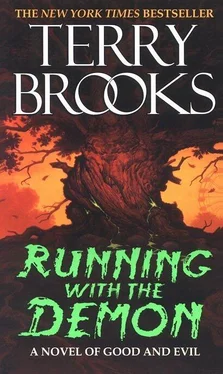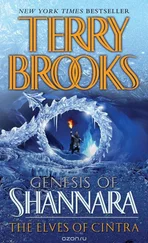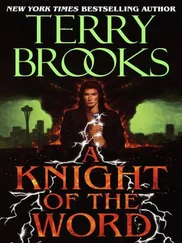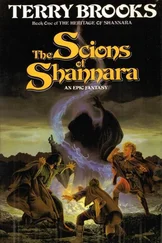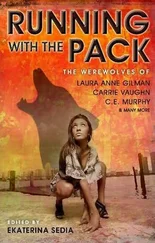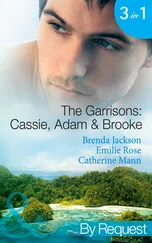Nest thought it over for a moment. "How am I supposed to be sure I've really got magic if I don't try it out?"
Her grandmother's gaze fixed on her anew. "You seemed sure enough about it when you were fighting with Lori Adami. Are you telling me that maybe you made it up?"
"No." Nest was immediately defensive. "I just don't know for sure. It all happened so/ast."
Her grandmother took a long drink from her glass and lit a cigarette. "You know. Now you do as I say."
So Nest had, although it was very hard. Eventually, she broke her promise, but not for several months, when she used her magic on a boy who was trying to pull down her swimsuit at the pool. Then she used it again on a kid who was throwing rocks at a stray cat. She knew for sure then that the magic was real, and that she could use it on anyone she wished. But the odd thing was, using it didn't make her feel very good. It should have provided her with some measure of satisfaction, but all it did was make her feel sick inside, as if she had done something for which she should feel ashamed.
It was Pick who had straightened her out, telling her that what her grandmother meant was that she wasn't to use her magic against other people. Using it against other people would always make her feel bad, because it was like taking advantage of someone who couldn't fight back. Besides, it would attract a lot of unwanted attention. But the feeders were fair game. Why not use it against them?
Pick's idea had worked. Using her magic against the feeders satisfied her curiosity and gave her an opportunity to experiment. Eventually she told Gran. Gran, saying little in response, had approved. Then Pick had enlisted her aid in dealing with the nighttime activities of the feeders, and summoning the magic had suddenly become serious business. After that, she had been very careful not to use it again on people.
Until now, she thought wearily as she walked home through the park. She had split up with the others as soon as they were in the trees and out of sight of the ball field. See you tomorrow, she had told them, as if nothing had happened, as if everything were all right. See you tomorrow, they'd replied. Hardly a word had been spoken about the incident, but she knew they were all thinking about it, remembering anew some of the stories about her.
Only Robert had ventured a parting comment. "Jeez, it didn't even look like you touched him!" he'd said in his typically direct, unthinking, Robert way. She was so distressed she didn't even try to respond.
As she reached the edge of the service road, she thought suddenly she might vomit. Her stomach churned and her head ached. The inside of her mouth tasted coppery, and her breathing was quick and uneven. Using the magic on Danny Abbott had been a mistake, even though it had probably saved Robert a beating. She had promised Gran she wouldn't use it again. More important, she had promised herself. But something had happened to her this afternoon. She had been so angry she had forgotten her resolve. She had simply lost control of herself.
She angled through the trees and houses that paralleled the park, closing in now on her home, buoyed by the sight of its familiar white siding and its big stone chimney, her refuge from the world. She knew what troubled her most about what had happened. It was what Danny had said. Your friends are weird. What are you doing with them? But, really, she was the one who was weird, and using the magic as she had just pointed it up. Having magic made her different from everyone–but that was just part of it. How much stranger could you be than to know that you were the only one who could see feeders, the only one, with some sort of monster dog for a protector, and the only one with a sylvan for a friend?
She was the one who didn't belong, she knew, tears running down her cheeks, and she wanted desperately not to feel that way.
Nest went for a run before dinner, disdaining to wait for the heat to lessen, needing to escape. She asked Gran if it would be all right, and Gran, with those unerring instincts for evaluating the depth of her granddaughter's needs, told her to go ahead. It was after six, the sun still visible in the western sky, the glare of midday softened to a hazy gold. Colors deepened as the light paled, the green of the leaves and grasses turning damp emerald, the tree trunks taking on an inky cast, and the sky overhead becoming such a clear, depthless blue that it seemed that if gravity's hold could be broken you might swim it like an ocean. As Nest turned out of her drive and ran down Sinnissippi Road, she could feel the branches of the big hardwoods sigh with the faint passing of a momentary breeze, and the sigh seemed collective and all–encompassing. Friday was ending, the work week had come to a close, and now the long Fourth of July weekend could begin in earnest. She ran to the end of Sinnissippi, barely a block from her drive, and turned east onto Woodlawn. Ahead, the road stretched away, a wide, straight racetrack that narrowed between the houses with their lawns, hedgerows, and trees and faded into the horizon. She ran smoothly on its shoulder, feeling her blood hum, her heart pound, her breathing steady, and her thoughts scatter. The movement of her legs and the pounding of her feet absorbed her, enfolded her, and then swallowed her up. She was conscious of the world slipping past like a watercolor running on a canvas backdrop, and she felt herself melt into it. Neighbors worked in their gardens or sat on then- porches sipping tea and lemonade and occasionally something stronger. Dogs and cats lay sleeping. Children played in their yards, and as she passed a few dashed toward her momentarily before stopping, as if \ they, too, were seeking an escape. Now and again someone waved or called out, making her feel welcome, a part of the world once more.
She ran the length of Woodlawn, then turned left to Moonlight Bay. She passed boats and trailers on their way to the launch and campers on their way to White Pines State Park sixty miles north. She ran the circle drive of the bay past the shorefront residences, then swung west again and ran back to her home. Slowly, surely, her trauma eased, left behind with her footprints in the dust. By the time she turned down her drive once more, she was feeling better about herself. Her shirt clung damply to her body and her skin was covered with a sheen of sweat. She felt drained and loose and renewed. As she i came up to the back door, she permitted herself a quick glimpse into the park, looking backward in tune to the events of the afternoon, better able now to face what she had done to' Danny Abbott–or perhaps, more accurately, what she had done to herself. The ache that the memory generated in her heart was sharp, but momentary. She sighed wearily, telling j herself what she sometimes did when things were bad–that she was just a kid–and knew as always that it wasn't so.
She showered quickly, dressed in fresh shorts and T-shirt (this one said Latte Lady), and came down for dinner. She sat at the kitchen table with her grandparents and ate tuna and noodle casserole with green beans and peaches off the everyday china. Gran nursed her bourbon and water and picked at j her food, a voiceless presence. Old Bob asked Nest about her i day, listened attentively as she told him about fishing with her friends, and didn't say a word about last night in the park. Through the open screen door came the sounds of the evening, distant and soft–the shouts of players and spectators as the '. night's softball games got under way in the park, the hiss of j tires on hot asphalt from cars passing down Sinnissippi Road, i the muted roar of a lawn mower cutting grass several houses i down, and the faint, silvery laughter of children at play. There ' was no air–conditioning in the Freemark house, so the sounds were clearly audible. Nest's grandparents couldn't stomach the idea of shutting out the world. You can deal better with the heat if you live with it, they liked to say.
Читать дальше
